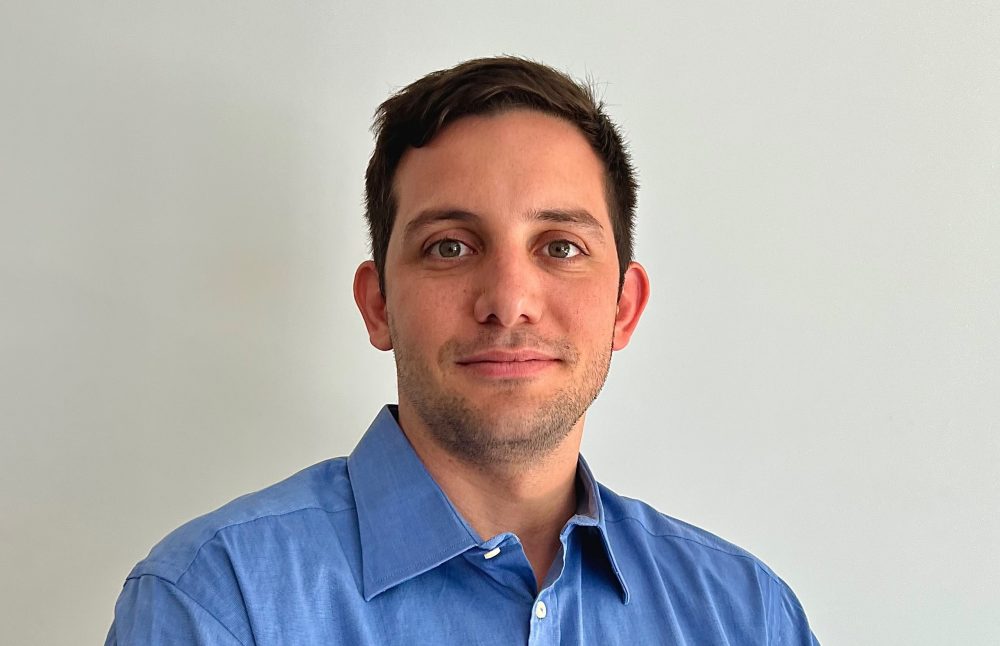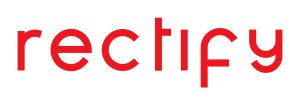I’m a computer engineer transformed into a ⚙️ passionate No Coder ⚙️. Reach out if you want to get introduced or learn more about the No Code world!
A day in the life of a 3rd time founder: Melissa Unsell-Smith
About this episode
We all have to deal with tasks that we don’t enjoy or take a lot of our time.
Here are 3 three strategies that could be followed:
- automate with technology
- delegate to a teammate or
- hire someone
In this episode, Melissa Unsell-Smith shares with us her experiences being a 3rd time founder.
You will hear about:
- the importance of culture fit with your teams
- habits of a 3rd time founder
- dealing with dreadful tasks, and their relevance with automating, delegating or hiring
- what founders can do to find more balance & well being in their life
- how to identify your zone of mastery
Transcript
Melissa Unsell-Smith: Hey Growth Mentor community, my name is Melissa Unsell-Smith. And I am actually a third time founder. I’ve had one retail business that actually epically failed. About two decades ago. I’ve also had a B2B SaaS company after that, that actually was a wild success. It was a such an honour and privilege to have that company for up to 15 years. And currently, I am the owner and operator of a business called Rectify, which is a data privacy business, also a B2B SaaS company. It’s been such an honour to be on the Growth Mentor platform, and meet other founders and kind of have these founder to founder discussions, it’s been an amazing opportunity. Recently, I also launched kind of a passion project called catalytic icon, in which I help founders kind of jump into an ecosystem of other entrepreneurs to really grow and scale their businesses.
Spyros Tsoukalas: Welcome to the Growth Mentor podcast, Melissa, excited to have you here. So let’s jump straight to the topic, which is a day in the life of a third time founder. And in this case, we have Melissa here. So would you tell us something we don’t know about the life of a third time founder?
Melissa Unsell-Smith: Sir, absolutely, I would say that, the first thing that comes to mind is you might think that you have business all figured out, but you actually don’t. And that’s what makes being a founder. So much fun, I would say, because there’s always new techniques, new market drivers, new resources that keep owning and operating a business, super eliminating. And one thing I’ve learned is that just because you were either successful at one business does not guarantee that you will be successful at the next one, yes, you may have a better head start. Because you have the experience, you may have additional team members and ecosystem of advisors and mentors around you. So you may have that head start. But it doesn’t always work out the same each and every time you own a business. There’s always something changing. And it’s such a dynamic process, which I think is why so many of us that have had multiple businesses, keep doing it, because every day is different every day is full of challenges. But it’s also super illuminating, and very fulfilling as well.
Spyros Tsoukalas: Would you share with us one of your recent learnings?
Melissa Unsell-Smith: Sure, I mean, I think recently, it’s really, especially in this environment is honing into your team and culture fit. And creating a culture that is a fun place for people to show up and be engaged with. And a place where people can connect with purpose and vision. I think that’s so important, especially in the time that we’re living in right now. So that’s one learning opportunity that I’ve really taken away from the past few months.
Spyros Tsoukalas: Thanks for sharing that. So Melissa, I’m curious to learn how does they have a founder of like, your experiences and level looks like like, how do you prioritise? How does it look like?
Melissa Unsell-Smith: Absolutely. Setting the stage for the day is so important. As a founder, we get pulled in a million different directions. So one of the things that I really love to do, and it’s something I’ve been doing for years, but I really honour and admire my morning routine. And I spend about 90 minutes for myself setting the stage for my day in my morning routine. And you know, I do things like walk the dog, I will meditate, I will review my goals and priorities. And I’ll also make sure I have time to read a few pages of just a fun book that I’m reading. And if I spend 90 minutes doing that, that really sets the tone for my day. And I always say that performance is 90% mental. So if you start your day, honouring your time and yourself, it really sets the stage for you to show up for your team in the activities that you have to accomplish during that day. Now, after that morning routine, the day is pretty chaotic. It goes by really fast. There’s meetings, there’s calls, there’s client meetings, there’s all kinds of fun things going on during the day. And then I make sure when I when I’ve had my last meeting for the day that I take a moment just to reflect on the day and wind down and maybe that’s just 15 to 20 minutes. Then I wind down for the day. And I try to be very mindful of just turning off the levers of business for the evening to time and just having that time for rejuvenation and play with family with the dogs. And I will honestly say that doesn’t always happen, right. But that in a perfect world, that’s kind of how I manage my day. And it seems to really help me maintain my energy and vivacity by investing the time in myself and well-being for that. So that’s worked out really well.
Spyros Tsoukalas: That is great. I might start it tomorrow. Actually, she inspired me that much. I have been trying to change my lifestyle for a while. So I might even apply tomorrow. So another question that I’m having here is like, how do you deal with dreadful tasks like things that you find challenging? Like, how do you work around them?
Melissa Unsell-Smith: Yes, oh, dreadful tasks. So I definitely have a hard and fast rule to automate, delegate, or higher. We all have to go through dreadful task in a moment of time. But I think being aware of when you’re engaging in menial tasks, and when they’re taking up a lot of your time, and having that awareness will allow you the capacity to either automate it with technology, there’s so much technology now that can automate some of those administrative efforts that we have to put into our business. You can also delegate it, there’s a good opportunity that someone on your team actually doesn’t mind executing that tasks that you actually hate doing. And so delegate that out to someone else, ask for help. And then third would be you know, if absolutely necessary, hire someone to do it for you, whether it’s adding an employee to your team or outsourcing to a third party vendor.
Spyros Tsoukalas: I like I like this format, like you gave us like three different solutions to how to do how to deal with this kind of stuff. So a common thing that I have observed among founders, friends, Growth Mentor people is like, like, what’s your take? What’s your advice? For founders, I used to be a founder as well, who are looking to find more balance and well-being in their life, because you get, like, absorbed by what you’re building. So how do you balance that?
Melissa Unsell-Smith: Yeah, balance and well being is so important. And it’s also probably one of the most challenging things for founders. And I can wholeheartedly say, I think I have a little bit more clarity on this, basically, because of my tenure of being a founder for over two decades. And so I kind of have this benefit of hindsight, which is always 20-20. But I also have this benefit of experience. And so if I could give any advice to founders around well being and maintaining some type of balance, it would be to really take a moment, again, to invest in yourself and learn about what I would call and everyone’s heard this term, but I call it zone of mastery. So whether you want to call it that, or zone of genius, if you really know where you strive and where your passions purpose, and talents intersect. That is your zone of mastery. And when you operate in that zone, something magical happens that not a lot of people think about, you actually unlock more time and energy for yourself, because you’re entering a state of flow. So if you can engage in identifying where your zone of mastery actually resides, and I always advise founders to spend 60% of their time in their zone of mastery, then you are going to unlock so much more potential for you, your business and your team. And it may seem counterintuitive, but it works. It definitely works. And so what I say is that other 40% of your time is actually reserved for things that are going to come up during the day that are outside of your zone of mastery, it’s going to be a client challenge or an employee situation. Or it could be some bookkeeping, legal or HR things that you need to deal with. But as long as those are not taking up the majority of your day and you’re operating in your zone of mastery, you can actually unlock more time and energy and in turn, also unlock more revenue and profit for your business. Now, that’s easier said than done, because you have to take the time to really take a look inward and kind of define you know, what is your zone of mastery for you? The reality is each of us have very unique skill sets and talents and passions and we’re all of us are one in a million, right? So you have to identify that on your own. That’s not something someone can do outside of yourself. But when you invest the time to do that, it becomes pretty magical.
Spyros Tsoukalas: Is there a practical way to identify where your zone of mastery is?
Melissa Unsell-Smith: There is there’s a couple of tactics and a couple of resources founders can leverage but at the most basic level, you know, it really is an exercise of just taking the time to brain dump. Everything that you are talented at, literally just brained up what am I innately good at, what comes so easy to me that it doesn’t even matter? And then on top of that, doing the same thing with your passions, like what fuels your fire, what do you love in any category. So if you write down every single talent you have, if you write down every single passion you have, and then you start to really look at those and intersect them, you can start to identify your zone of mastery, it goes way beyond that. But at a basic level, that’s a really good place to start.
Spyros Tsoukalas: Thank. Thanks for clarifying that. So I think you’re quite active in the sector. So do you offer any resources for founders who want to optimise their well-being alongside establishing and scaling a business?
Melissa Unsell-Smith: Yes, actually, I do. Because I feel very passionate about founder well being, because I know that, you know, if you’re not careful, burnout can happen, you can get really tired. And when you get extremely tired and exhausted and have that burnout, you’re not going to be as productive, you’re not going to show up for your team appropriately. And you’re going to start to have blind spots that you’re not even aware of. And so I’m all about being effective, right, effective, and efficiency. So I do have some resources. I mentioned earlier in the show, during the introduction, that I’ve launched a passion project called Catalytic Icon. And that is a way for me to pay it forward for founders, that Catalytic Icon is basically an ecosystem where entrepreneurs can jump into a community of peer people and other highly vetted founders to jump into an ecosystem to talk about the true optics of their businesses. And one of the things that I’ve learned, even while being a Growth Mentor, is we are often as founders very self reliant. And so we think that we can and should be accomplishing any obstacle or challenge on our own. When that’s not the case. I wholeheartedly believe that when you plug into a community of founders, and you take the time to invest in conversations that are challenging, you can grow and scale your business that much quicker. So what I’m doing is basically giving founders a resource to access off the record, kind of insider conversations between founders, these are founder to founder discussions, where we really authentically discuss what are your challenges? What are your obstacles? And how can we leverage the collective intelligence of this group to process that. And what I’ve learned is that founders are often fearful of actually having these conversations or even exposing these flaws in their business. But the more you sit on that without issue processing it, the more it becomes a really big obstacle in your business that keeps growing. So when you plug into a community of founders, and you talk about it, and you have these authentic kind of confidential conversations, you can really surpass those obstacles in a meaningful way and identify solutions and move beyond it. So it’s plugging in to community and community is so important, by the way, I mean, 95% of your success is dependent on who you surround yourself with. So you should be surrounding yourself with other highly successful founders and getting through these obstacles. And then really having these authentic conversations to and not letting an obstacle or a challenge, fester for weeks or for months, because that will create larger problems down the road. So that’s a resource that I have been very proud and honoured to offer over the past several months to founders to kind of plug in meet a group of strangers that have really meaningful interactions to help solve these business problems.
Spyros Tsoukalas: Thanks for sharing all those details for your life and passion with us today, Melissa. I hope that this episode will be as exciting for founders as it was, for me, having been a founder in the past, I totally relate with all the lessons and advice you have been sharing. And honestly, I might try to kick off some of the activities that have been postponing for a while.
Melissa Unsell-Smith: That would be great Spyros. You should, love that.
Spyros Tsoukalas: Thank you very much for your time and your insights today with us.
Melissa Unsell-Smith: Absolutely. Thank you.
In this episode


Over my entrepreneurial journey, I have started and led three companies. One retail business and two technology startups (both B2B SaaS). My first tech business was bootstrapped and my second one has seed funding.
Join the community
Enjoy the peace of mind that advice is always only one Zoom call away.


